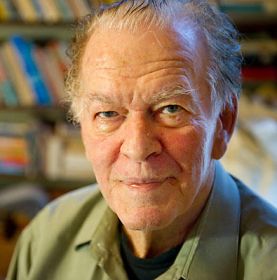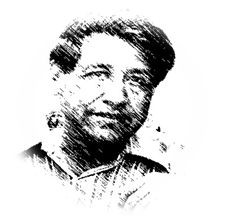
|
||||||||||||||||
Click image for bio
 (from Wikipedia)
(from Wikipedia)
Gene Sharp (born 21 January 1928) is known for his extensive writings on nonviolent struggle: he has been called both the "Machiavelli of nonviolence" and the "Clausewitz of nonviolent warfare."
Sharp received a B.A. and an M.A. from Ohio State University and a PhD. in political theory from Oxford University. He is Professor Emeritus of political science at the University of Massachusetts Dartmouth. He held a research appointment at Harvard University’s Center for International Affairs for almost 30 years. In 1983 he founded the Albert Einstein Institution, a non-profit organization devoted to studies and promotion of the use of nonviolent action in conflicts worldwide.
Sharp's scholarship has influenced resistance organizations around the world. Most recently and notably, his work has affected youth movements in the Eastern European color revolutions. Sharp's handbook From Dictatorship to Democracy served as a basis for the campaigns of Serbia's Otpor (who were also directly trained by the Albert Einstein Institute), Georgia's Kmara, Ukraine's Pora, Kyrgyzstan's KelKel and Belarus' Zubr.
Gene Sharp described the sources of his ideas as in-depth studies of Mohandas K. Gandhi, Henry David Thoreau to a minor degree, and other sources footnoted in his 1973 book "The Politics of Nonviolent Action", which was based on his 1968 PhD thesis.[6] In the book, he provides a pragmatic political analysis of nonviolent action as a method for applying power in a conflict.
Sharp's key theme is that power is not monolithic; that is, it does not derive from some intrinsic quality of those who are in power. For Sharp, political power, the power of any state - regardless of its particular structural organization - is derived from the subjects of the state. His fundamental belief is that any power structure is based on the subjects' obedience to the orders of the ruler(s). Therefore, if subjects do not obey, leaders have no power.
In Sharp's view all effective power structures have systems by which they encourage or extract obedience from their subjects. States have particularly complex systems for keeping subjects obedient. These systems include specific institutions (police, courts, regulatory bodies) but may also involve cultural dimensions that inspire obedience by implying that power is monolithic (the god cult of the Egyptian pharaohs, the dignity of the office of the President, moral or ethical norms and taboos). Through these systems, subjects are presented with a system of sanctions (imprisonment, fines, ostracism) and rewards (titles, wealth, fame) which influence the extent of their obedience.
Links:
